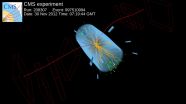Can drinking alcohol harm the child before the mother knows she is pregnant?
Exposure to alcohol in early pregnancy changes the way genes function, and influences brain structure in mice
2015-05-13
(Press-News.org) Alcohol drunk by a mouse in early pregnancy changes the way genes function in the brains of the offspring, shows the recent study conducted at the University of Helsinki. The early exposure was also later apparent in the brain structure of the adult offspring. The timing of the exposure corresponds to the human gestational weeks 3-6 in terms of fetal development.
In addition, the exposure to alcohol was found to cause similar changes to gene function in other tissues of the infant mice. These results suggest that alcohol causes permanent changes to gene regulation in the first cells of developing embryo.
Exposure to alcohol during pregnancy may damage the child in many different ways, including learning disabilities as well as congenital deformities. The mechanisms through which alcohol impacts fetal development are not yet fully understood, and diagnosing the damage caused to the child is difficult.
In the mouse model where the dam drinks alcohol in early pregnancy, the offspring exhibit symptoms similar to fetal alcohol syndrome (FAS) in humans: decreased growth rate, similar structural changes to corresponding areas of the face and scull, and hyperactivity. The early exposure begins at conception and continues until the nervous system begins to develop. In humans, this corresponds to the first three or four weeks after conception in terms of development - a period during which the mother-to-be is often unaware of being pregnant.
Early pregnancy is an active time for cell division and differentiation. All the different cell types share a similar DNA strand, but in each of them a unique epigenome is formed to regulate their gene function. At this stage, the embryo is vulnerable to external influences, and any changes can spread extensively to different tissues as cells divide.
The study, led by Dr. Nina Kaminen-Ahola, wanted to determine whether alcohol consumed in early pregnancy causes changes to the epigenome that regulates the embryo's genes. In addition, the researchers examined whether the potential changes would be seen later in the gene function and brain structure of the offspring.
The research focused on the hippocampus, a brain structure important for memory and learning. It is known to be particularly sensitive to alcohol. In the study, early exposure to alcohol changed the epigenome as well as the function of several genes in the hippocampi of infant mice. Alcohol-induced changes were also seen in the brain structures of the adult offspring: the hippocampi, olfactory bulbs and cerebral ventricles.
In addition to the hippocampus, alcohol caused similar changes to gene function in two different tissues of the infant mice - bone marrow and the olfactory epithelium of the snout.
"The results support our assumption that alcohol permanently alters gene regulation at a very early stage," states researcher Nina Kaminen-Ahola.
"This would be significant for the challenging diagnostics of alcohol-induced damage. The mechanisms and biological markers which can aid in diagnosis are studied so that we can offer the developmental support necessitated by the damage as early as possible. Ideally, a swipe sample from inside the mouth of a newborn could reveal the extent of damage caused by early pregnancy alcohol exposure," she continues.
INFORMATION:
ELSE PRESS RELEASES FROM THIS DATE:
2015-05-13
Two experiments at the Large Hadron Collider at the European Organization for Nuclear Research (CERN) in Geneva, Switzerland, have combined their results and observed a previously unseen subatomic process.
As published in the journal Nature this week, a joint analysis by the CMS and LHCb collaborations has established a new and extremely rare decay of the Bs particle (a heavy composite particle consisting of a bottom antiquark and a strange quark) into two muons. Theorists had predicted that this decay would only occur about four times out of a billion, and that is roughly ...
2015-05-13
Benign prostatic hyperplasia (BPH) -- or, simply, prostate enlargement -- is one of the most common diseases of aging among men in the United States. In fact, by the time they hit 80 or above, upwards of 90 percent of all men in the U.S. experience some degree of prostate enlargement. And of those, 40 percent require medical treatment.
Despite the fact that the disease impacts so many people and carries with it a huge price tag -- estimated at tens of billions of dollars per year in medical expenses and lost wages, among other costs -- the factors that contribute to BPH ...
2015-05-13
For the first time, satellite mapping of Latin America shows that the continent's agricultural expansion has waned in the wake of the global economic downturn, according to UBC research.
"Nearly every agricultural region across Latin America slowed down in expansion from 2007 to 2013, compared to the previous six years," says Jordan Graesser, the study's lead author. Graesser is a visiting international student at UBC's Liu Institute for Global Issues and the Institute for Resources, Environment and Sustainability.
The study, recently published in Environmental Research ...
2015-05-13
ITHACA, N.Y. -- If you're planning to fly over the holiday, plan to drink some tomato juice. While examining how airplane noise affects the palate, Cornell University food scientists found sweetness suppressed and a tasty, tender tomato surprise: umami.
A Japanese scientific term, umami describes the sweet, savory taste of amino acids such as glutamate in foods like tomato juice, and according to the new study, in noisy situations -- like the 85 decibels aboard a jetliner -- umami-rich foods become your taste bud's best buds.
"Our study confirmed that in an environment ...
2015-05-13
PITTSBURGH -- A research team led by the University of Pittsburgh's Jeremy Levy has discovered electrons that can "swing dance." This unique electronic behavior can potentially lead to new families of quantum devices.
Superconductors, materials that permit electrical current to flow without energy loss, form the basis for magnetic resonance imaging devices as well as emerging technologies such as quantum computers. At the heart of all superconductors is the bunching of electrons into pairs.
Levy, Distinguished Professor of Physics and Pittsburgh Quantum Institute director, ...
2015-05-13
The type of perfectionist who sets impossibly high standards for others has a bit of a dark side. They tend to be narcissistic, antisocial and to have an aggressive sense of humor. They care little about social norms and do not readily fit into the bigger social picture. So says Joachim Stoeber of the University of Kent in the UK, who compared the characteristics of so-called other-orientated perfectionists against those of perfectionists who set the bar extremely high for themselves. The study is published in Springer's Journal of Psychopathology and Behavioral Assessment.
Perfectionism ...
2015-05-13
Typhoon Dolphin (strengthened overnight on 5/12 from Tropical Storm status) formed south of Pohnpei in the western Pacific Ocean on May 7, 2015. Dolphin's power has oscillated from a weak tropical depression to typhoon intensity over the past five days. Dolphin is now an intensifying typhoon headed westward.
The GPM core observatory satellite flew over Dolphin on May 12, 2015 at 2301 UTC. At that time Dolphin's wind speeds were estimated at about 65 kts (75 mph). Rainfall collected by GPM's Microwave Imager (GMI) showed that rain was falling at a rate of over 47 mm (1.9 ...
2015-05-13
As murder mysteries go, it's a big one: how do galaxies die and what kills them? A new study, published today in the journal Nature, has found that the primary cause of galactic death is strangulation, which occurs after galaxies are cut off from the raw materials needed to make new stars.
Researchers from the University of Cambridge and the Royal Observatory Edinburgh have found that levels of metals contained in dead galaxies provide key 'fingerprints', making it possible to determine the cause of death.
There are two types of galaxies in the Universe: roughly half ...
2015-05-13
If you walk into a dark room, you can still find your way to the light switch. That's because your brain keeps track of landmarks and the direction in which you are moving. Fruit flies also boast an internal compass that works when the lights go out, scientists at the Howard Hughes Medical Institute's Janelia Research Campus have discovered. Their findings suggest that dissecting how fruit flies navigate through the world could help researchers understand how humans and other mammals achieve that task.
In our brains, several kinds of neurons help us get and keep our bearings. ...
2015-05-13
Humans concerned about climate change are working to find ways of capturing excess carbon dioxide (CO2) from the atmosphere and sequestering it in the Earth. But Nature has its own methods for the removal and long-term storage of carbon, including the world's river systems, which transport decaying organic material and eroded rock from land to the ocean.
While river transport of carbon to the ocean is not on a scale that will bail humans out of our CO2 problem, we don't actually know how much carbon the world's rivers routinely flush into the ocean - an important piece ...
LAST 30 PRESS RELEASES:
[Press-News.org] Can drinking alcohol harm the child before the mother knows she is pregnant?
Exposure to alcohol in early pregnancy changes the way genes function, and influences brain structure in mice



